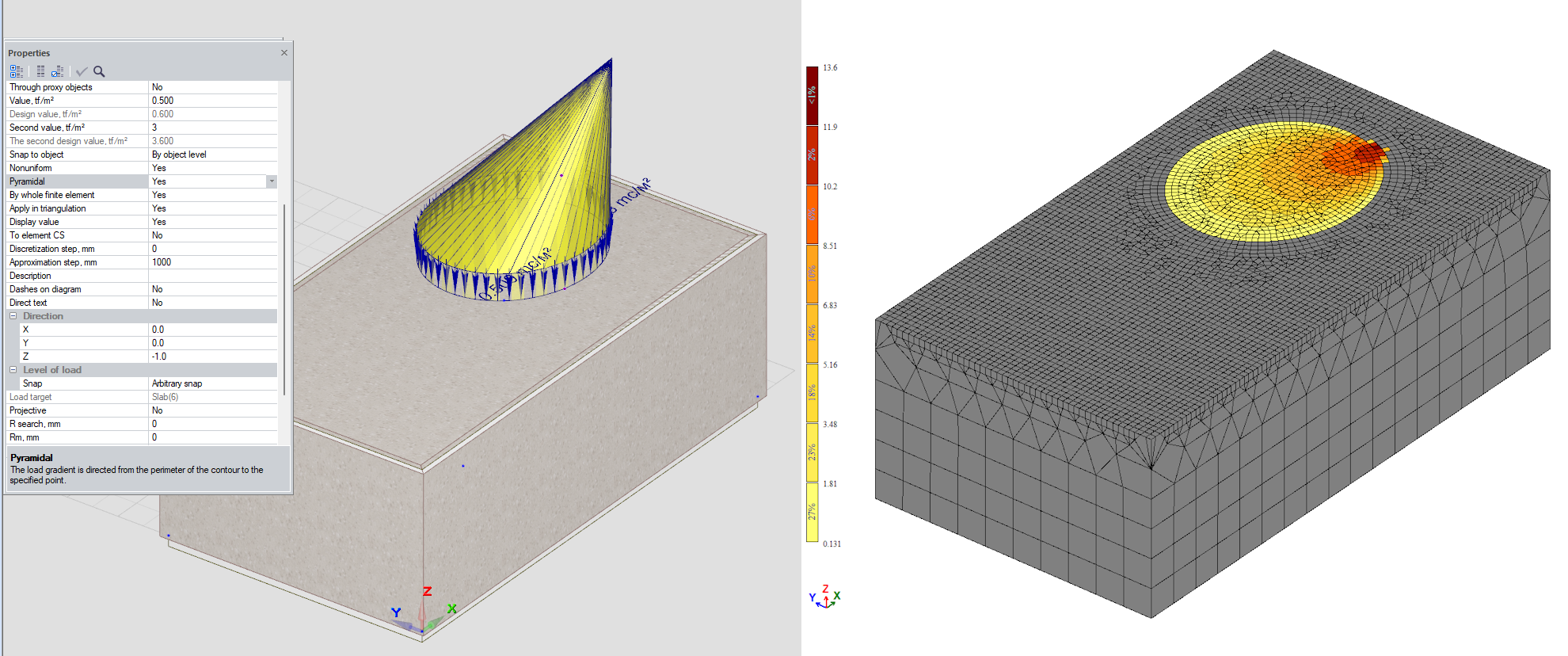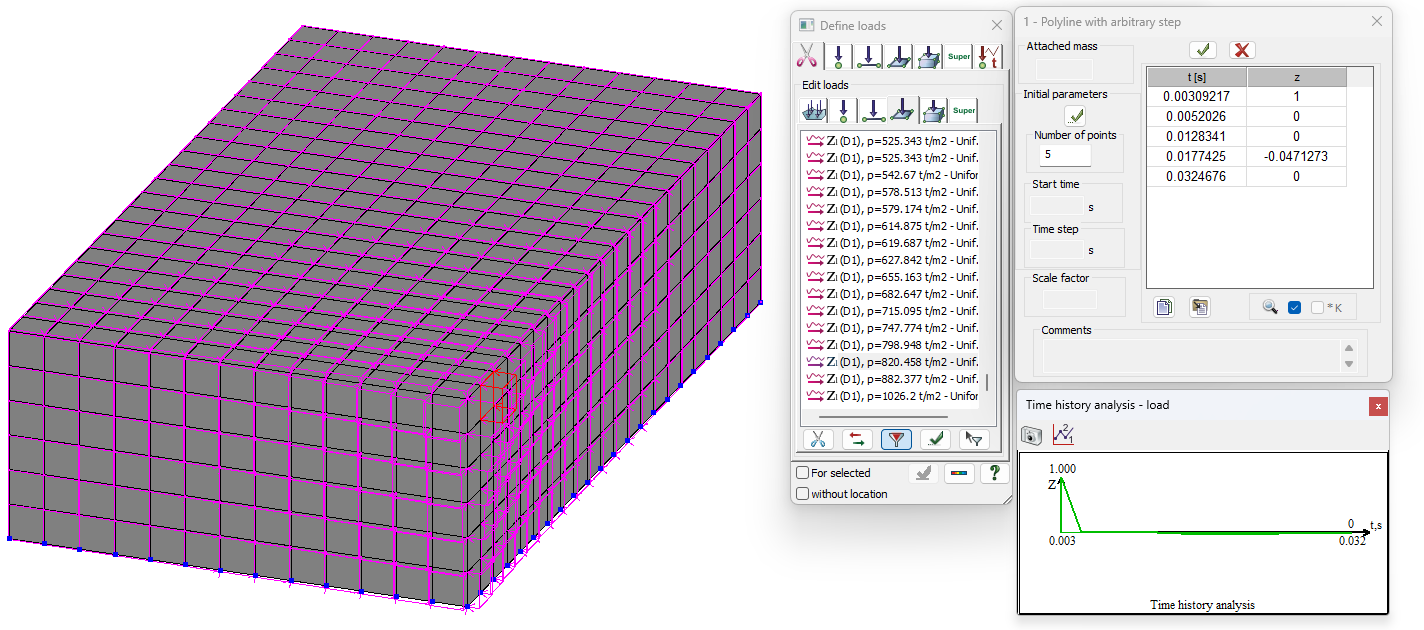Blast analysis
In the LIRA-FEM software, analysis on explosive load may be carried out by various methods.
- Finite element analysis
- Static analysis
- Dynamic analysis
- Nonlinear analysis
- Seismic analysis
- Design combinations
- Frame analysis
- Beam analysis
Analysis of structures on blast wave (explosion)
The LIRA-FEM software implements the blast analysis of buildings. It includes:
- automatic collection of load from blast wave (explosion);
- quasi-static blast analysis;
- blast analysis by the direct dynamic method.
Automatic collection of load from blast wave
In the LIRA-CAD module with the help of the Blast node, it is possible to automate all processes related to determining the intensity of the blast load and its application to the relevant structural elements. Various blast parameters are considered: mass of the charge, location of the explosion (in the air or on the surface), the step for approximation of the overpressure distribution, etc.
The calculation of overpressure on structural elements is performed in accordance with the international standards (UFC 3-340-02: Structures to Resist the Effects of Accidental Explosions). The explosive load can be applied both statically and dynamically.
Quasi-static blast analysis
The LIRA-FEM software implements blast analysis by quasi-static method according to DBN B.2.2-5:2023.
The explosion load is defined as static one. To collect this load, the engineer could either use the Blast node or collect the load manually and assign it with the Pyramidal load in LIRA-CAD module.
Analysis by direct dynamic method
In the LIRA-FEM program, blast analysis is carried out by the direct dynamic method. A graph of the overpressure variation over time, accounting for both positive and negative phases, can be produced during the automatic collecting of blast loads. For every finite element of the structure, the parameters of the direct dynamic analysis will be defined.
GENERATOR
Visual parametric programming to automatically generate and modify the complex 3D structures.
LIRA-CAD module (preprocessor)
Generation of a meshed model based on an information 3D model.
Time History Analysis
Modelling the process of dynamic loading on the basis of accelerograms with determination of forces and displacements in certain time intervals; the damping structures and material damping are considered.
Evaluate the software
If you have any doubt, download the Demo version and evaluate the program or contact our Support Team for more details.




